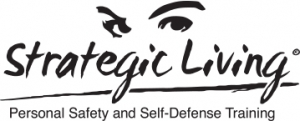Blink!, by Malcolm Gladwell
Gladwell’s focus in Blink is on these snap decisions, why some are absolutely right on and others so wrong. Rather than a reliance on the slow rational process, snap decisions come from gut feelings, intuition, or as Gladwell puts it, behind the “locked door” of your unconsciousness. Gladwell states three aims for his book. First is to make the case for the accuracy of snap decisions. Second is to be able to understand why some snap decisions are good and others poor. Third, that we all can improve the quality of our snap decisions.
What differentiates the good versus bad decisions, i.e. intuition versus prejudicial judgments? Accurate information, understanding which among all that information are the few crucial keys, and practice.
If you’re expecting “improve your SNAP in 30 days,” you’ll be disappointed. At his best depicting the good, the bad and the ugly, Gladwell is not nearly as explicit in prescribing a course to improve the quality of our decisions. He depicts it anecdotally. The next-to-last chapter, focusing on the shooting death of Amadou Diallo in 1999 by New York police officers, describes how we read other people we feel may be a threat, how our bodies react under stress, and practices that police and security people can practice to help—or worsen—already bad situations. We are left to infer applications into our lives.
What does this mean for your safety?
First, you need accurate background information. Learn your real risk factors. For example, most women are assaulted by people they are acquainted with in a home, yet the vast majority of safety advice assumes your assailant will be a stranger leaping from the shrubbery. Over 90% of assaults on children are committed by people known to the family, yet almost all participants in my KidSafe classes come in focused on “stranger danger.”
Second, you need awareness. You’re likely to ruin your judgment when you begin to rationalize and second-guess yourself. You can “feel” when you find yourself making excuses for someone else’s questionable behavior—pay attention! Become aware of how your body is sending you messages—how do you feel under work deadlines, home life stress, feeling fear? Your experience of fear is you body’s way of telling you to listen up.
Finally, take action. Don’t just read about accurate information and awareness, figure out how they fit into your life. Begin a meditative practice that employs breathing. Get to know your neighbors and participate in your neighborhood’s safety activities. Or begin your neighborhood’s safety activities. Vary your sources of news and information. Recognize the powerful financial interests that cultivate fear to sell products. Notice patterns and results. Acknowledge you have fears, and consider a desensitizing process for managing stress and fear. Seek out novelty: meet new people, try a different cuisine, take up a new activity. Take a safety skills class that focuses on dealing with your real risks.
Life gives us all plenty of opportunity to learn and plan. So that when we feel our breathing quicken, pulse rate rise, and chest tighten, our actions in the next few seconds WILL get us out of harm’s way.
